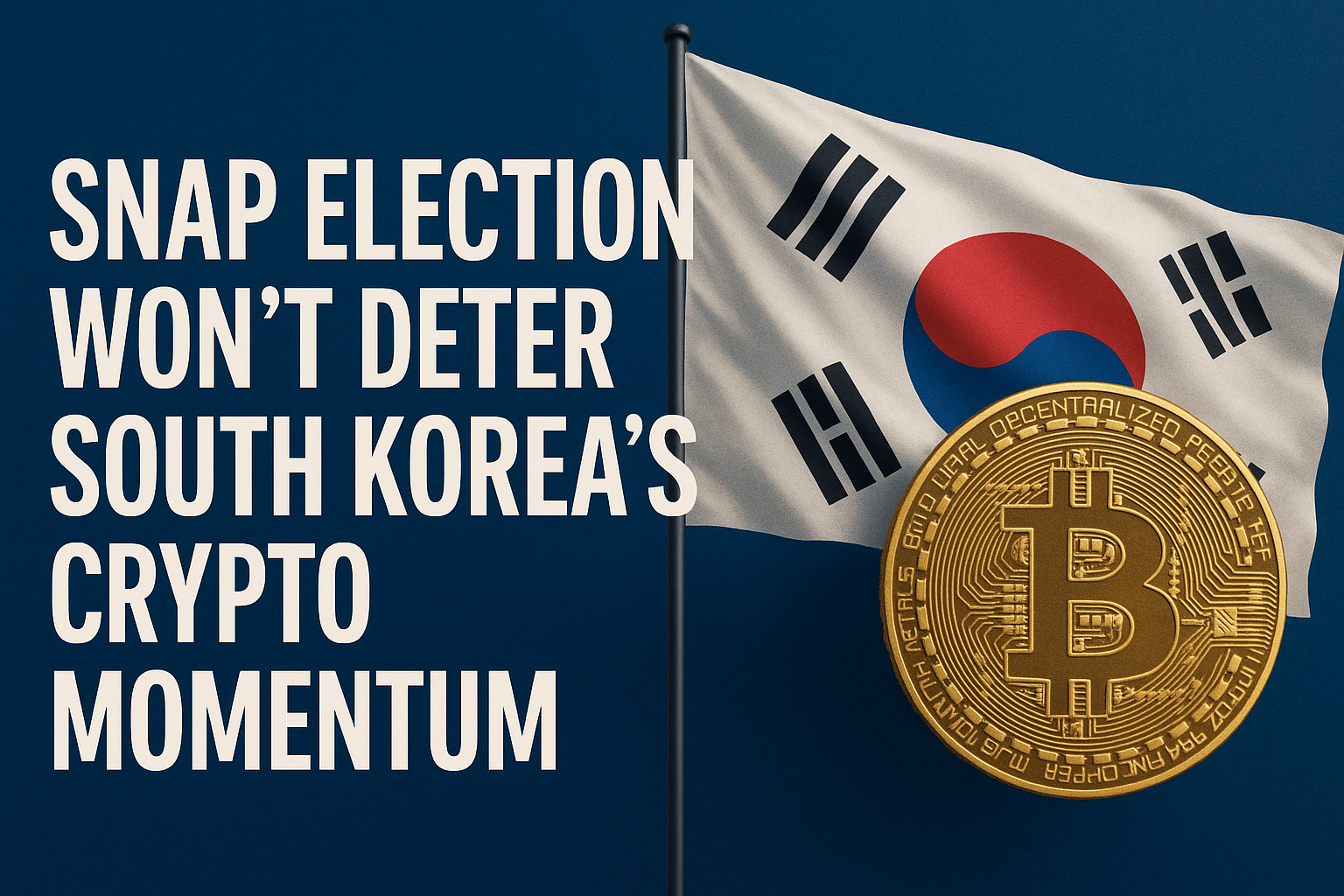
Snap Election Crypto Boost
South Korea’s political landscape is undergoing rapid changes, but one constant remains: its growing embrace of cryptocurrencies. With a snap presidential election scheduled for June 3 to replace the impeached Yoon Suk-yeol, the country stands at a political crossroads. Yet regardless of who wins, South Korea’s crypto sector is poised for growth, thanks to bipartisan support for progressive digital asset policies.
Both leading presidential candidates—Lee Jae-myung of the center-left Democratic Party and Kim Moon-soo of the conservative People Power Party—have outlined pro-crypto platforms. Their shared vision of legitimizing spot crypto ETFs, encouraging broader crypto adoption, and easing regulatory hurdles ensures that South Korea’s status as a global crypto hub will only strengthen post-election.
Candidates Support Crypto Growth
Lee Jae-myung, currently leading the polls with 49% support according to a recent Gallup Korea survey, has laid out an ambitious pro-crypto agenda. He supports the legalization of spot cryptocurrency exchange-traded funds (ETFs) and advocates allowing the country’s $884 billion national pension fund to invest in digital assets. This move could catalyze institutional adoption and add legitimacy to crypto as a mainstream asset class.
Lee has also expressed strong support for launching a won-backed stablecoin, positioning it as a strategic step toward modernizing the national financial infrastructure and mitigating capital outflows. Furthermore, he aims to reduce the strict banking requirements that force crypto exchanges to work with licensed banks to offer fiat services—a move that could open doors for more innovation and participation.
Surprisingly, Lee’s opponent Kim Moon-soo, despite their ideological differences, echoes many of the same sentiments. Kim has also pledged to legalize spot crypto ETFs and expressed support for easing the burdensome regulations that currently stifle the industry. This rare display of bipartisan alignment underscores a national consensus: crypto is integral to South Korea’s financial future.
Simon Seojoon Kim, CEO of Seoul-based venture capital firm Hashed Ventures, aptly summed up the sentiment, stating that South Korean crypto investors are “guaranteed a win regardless of the election outcome.”
Urgency Behind Regulatory Reform
The push for clearer, friendlier crypto regulations is not merely a campaign tactic—it’s a necessity. South Korea has one of the world’s most active cryptocurrency markets. With more than 18 million people involved in crypto, representing over a third of the population, the nation has become a retail crypto powerhouse. Daily trading volumes on Korean exchanges often surpass those of traditional stock markets, with over 16 million registered users recently reported.
However, this rapid adoption has brought with it increased scrutiny. In July 2024, the government implemented stringent regulatory reforms aimed at cracking down on illicit activity and improving transparency. These included severe penalties for criminal violations—up to life imprisonment—and strict requirements for exchange operations. While these measures were aimed at protecting investors, many critics argued that they also stifled growth and innovation.
The recent moves by the Financial Services Commission (FSC) suggest a recalibration. On May 20, the FSC finalized a set of sweeping new crypto guidelines, including clearer standards for listing tokens on exchanges and rules governing nonprofit crypto sales. This shift signals that the government is keen to strike a balance between investor protection and industry growth.
Policy Committees and Momentum
As part of this evolving regulatory approach, the Democratic Party launched a dedicated Digital Asset Committee in May. This new body is tasked with creating comprehensive crypto policies that can support innovation while maintaining transparency and consumer protection. The formation of this committee further highlights the government’s commitment to integrating crypto into the national economy rather than resisting it.
These developments indicate that the momentum behind crypto in South Korea is not just campaign rhetoric. Institutional mechanisms are already in place to foster long-term growth, regardless of which political party is in power after the election. The focus is clearly on turning South Korea into a leading global crypto innovation hub.
Conclusion: South Korea’s Crypto Future
In a region where regulatory uncertainty has often stifled digital innovation, South Korea stands out as a beacon of clarity and ambition. The upcoming snap election may change the country’s political leadership, but it won’t derail its crypto trajectory. With both leading candidates championing crypto-friendly policies, the stage is set for continued expansion and legitimacy of digital assets in South Korea.
From ETF legalization and pension fund investment to won-backed stablecoins and reduced regulatory burdens, the country’s next administration—regardless of who leads it—will inherit a crypto sector ready to scale new heights.
As the world watches South Korea’s political drama unfold, one thing is clear: the crypto revolution in the nation is only just beginning.
For more insightful updates, visit qerra.news today.